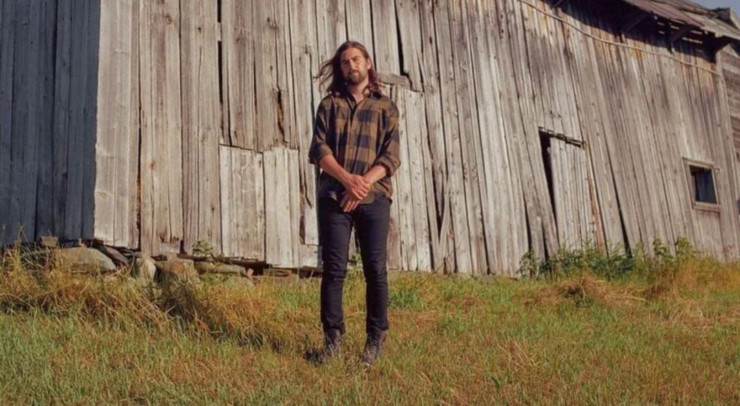Indie-folk music for defensive lovers, self-deprecating humour fans, and those who love to hate their hometowns
Content Warning: mentions of mental health/illness, trauma, grief, medication.
Stick Season (We’ll All Be Here Forever) marks Noah Kahan’s third studio album — but more than that, it marks the artist’s major musical breakthrough. Stick Season (We’ll All Be Here Forever) is the 2023 expanded version of the gold-certified record, originally released in 2022 to major acclaim. From an unknown Vermont singer-songwriter to sold-out stadiums of over 25,000, Kahan found his true North sound nowhere else but within himself.
Kahan’s indie-folk musical style draws listeners in, as the album carries you through themes of melancholy, bitter nostalgia, and introspection, even lyrics aside. Once hooked, listeners are gripped by Kahan’s brutally heart-wrenching pen. In his lyrics, Kahan leaves no stone unturned in his expression of what it means to exist and to die, authentically.
More than that, Kahan also expertly literates the complexities of trauma, mental illness, and the twisted and bitter coming-of-age that follows, demonstrating honesty and a genuine understanding stemming from his own experiences. Insecurities, inhibitions and the defensive nature born and bred from mental illness are evident throughout the entire album, even in the upbeat songs, as whispers in Kahan’s genius use of metaphorical language.
The album title, Stick Season, is a reference to the Vermont season between autumn and winter, when snow hasn’t fallen yet but the trees are bare. Stick seasons are also a season Ottawa experiences due to our proximity to Vermont. This notifies listeners of the album’s folk and acoustic nature, but also ties perfectly with the album’s major themes. The bare-bones nature of a stick season might reference the bare-bones honesty found within the album.
It also may be hinting at stripping something down to its bones or finding the root of something, even emotionally. As Kahan progresses throughout the album, notably becoming increasingly vulnerable with each track’s progression. He is working to dig the roots of his own problematic defensive behaviours and trauma responses, hoping that, “the skin heals where the pain enters”.
A stick season is also somewhat uncomfortable, not cold enough to snow or warm enough for a nice day, possibly a reflection of the uncomfortable and confusing nature of healing, especially after a lifetime of avoiding it.
Opening the album with the avoidant-attachment style anthem, “Northern Attitude”, to follow with heartbreak hit single “Stick Season”, helps to solidify the tone and major themes of the album. This is sung through lyrics such as “If I get too close, and I’m not how you hope / Forgive my northern attitude, I was raised out in the cold” and Stick Season’s hook, “I love Vermont but it’s the Season of the Sticks”. The lyricism demonstrates the bitter-sweet feeling of being alone and found all at once.
As the tracks progress, Kahan masterfully translates the idea of growing comfortable with your trauma, grief and ultimately pain. An overlooked struggle of healing is how hard it is to let go of the very thing that’s hurting you. On “Your Needs, My Needs” Kahan sings, “You’ll always be the flower on my skin / And the pain that I am in”.
Kahan’s writing on the album also rewards attentive listeners with a closer insight into the album’s greater story. On “Stick Season”, Kahan sings, “Now I am terrified of weather, cause I see you when it rains”. Then later in the album on “No Complaints”, he writes “Now the pain’s different / It still exists, it just escapes different / And evades vision, makes the rain different”. Somewhere between 16 tracks of writing and reflection, Kahan sees the rain he was once terrified of as different.
“Growing Sideways”, a track dedicated to the insecurities that come with mental illness and the fears of growing up differently. It highlights Kahan’s time in therapy and the complications of psychological medication, “It’s better to die numb, then feel it all”. Likely referencing the numbing effect that mental health medications can have.
Kahan said in an interview how he will never stop writing honestly about mental health, an overlooked and sometimes taboo topic in the music industry, hoping he can help eliminate the stigma and help others feel less alone. Kahan’s “The BusyHead Project” has currently raised over 2 million dollars for mental health initiatives and services that work to improve access to mental healthcare for all.
It is rare to see an artist who is equally brave, dignified, and honest. Kahan’s presence in the music industry is changing more than our playlists — it’s changing our hearts and setting a precedent for future artists to tell the truth, even when it’s hard. Kahan’s gut-wrenching lyrics pull at the heartstrings of many because for many, they are reality more than they are songs. Kahan’s album reminds us that, while you will hurt, you will also heal, and you are never as alone as you think.
Stick Season (We’ll All Be Here Forever) is ultimately an album about grief, pain, healing, the inevitable end, the delicate beginning, and how losing yourself is the only real way to find yourself. Kahan sings “we’ll all be here forever”, but I’m starting to think that maybe, that’s not such a bad thing after all.





